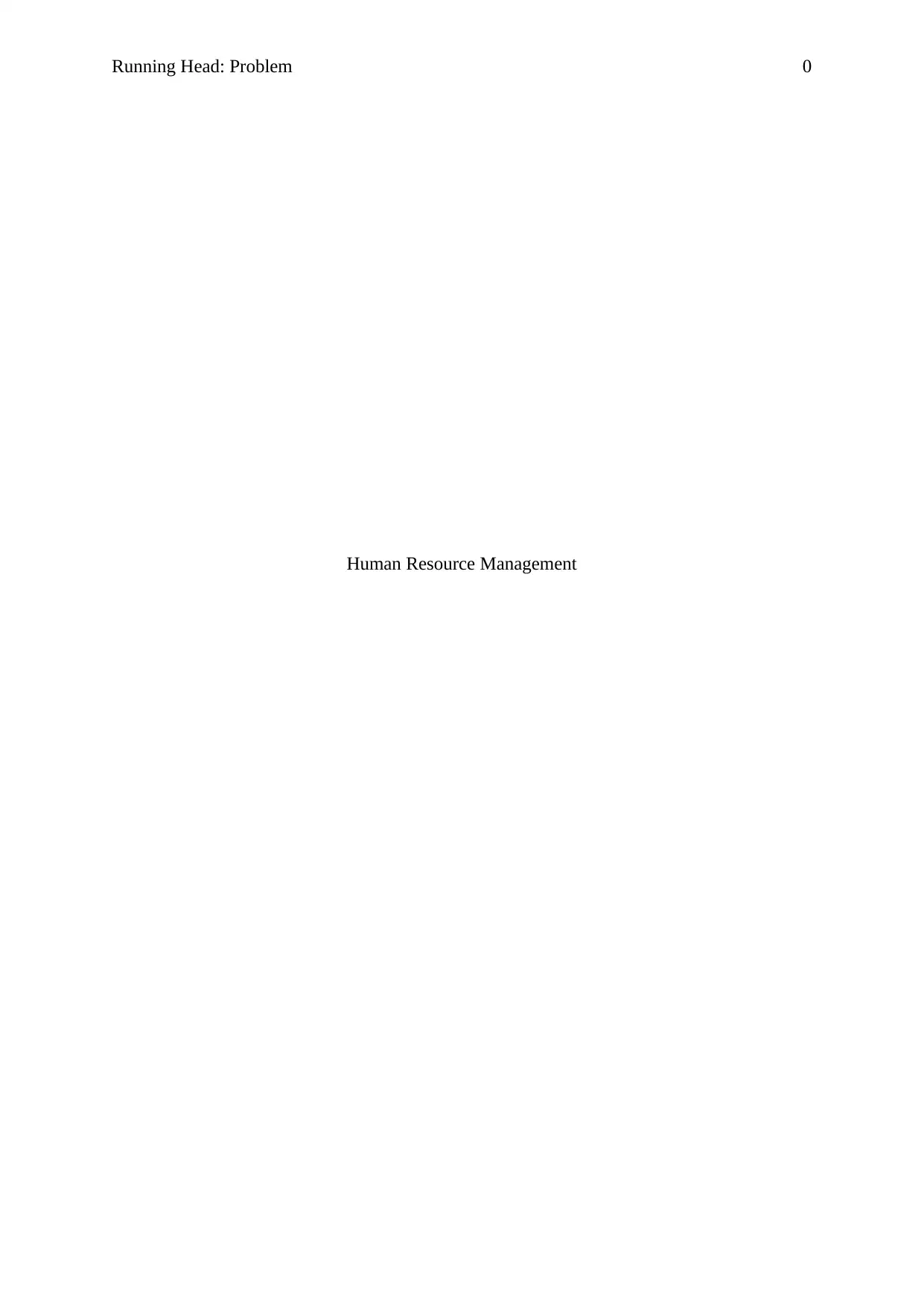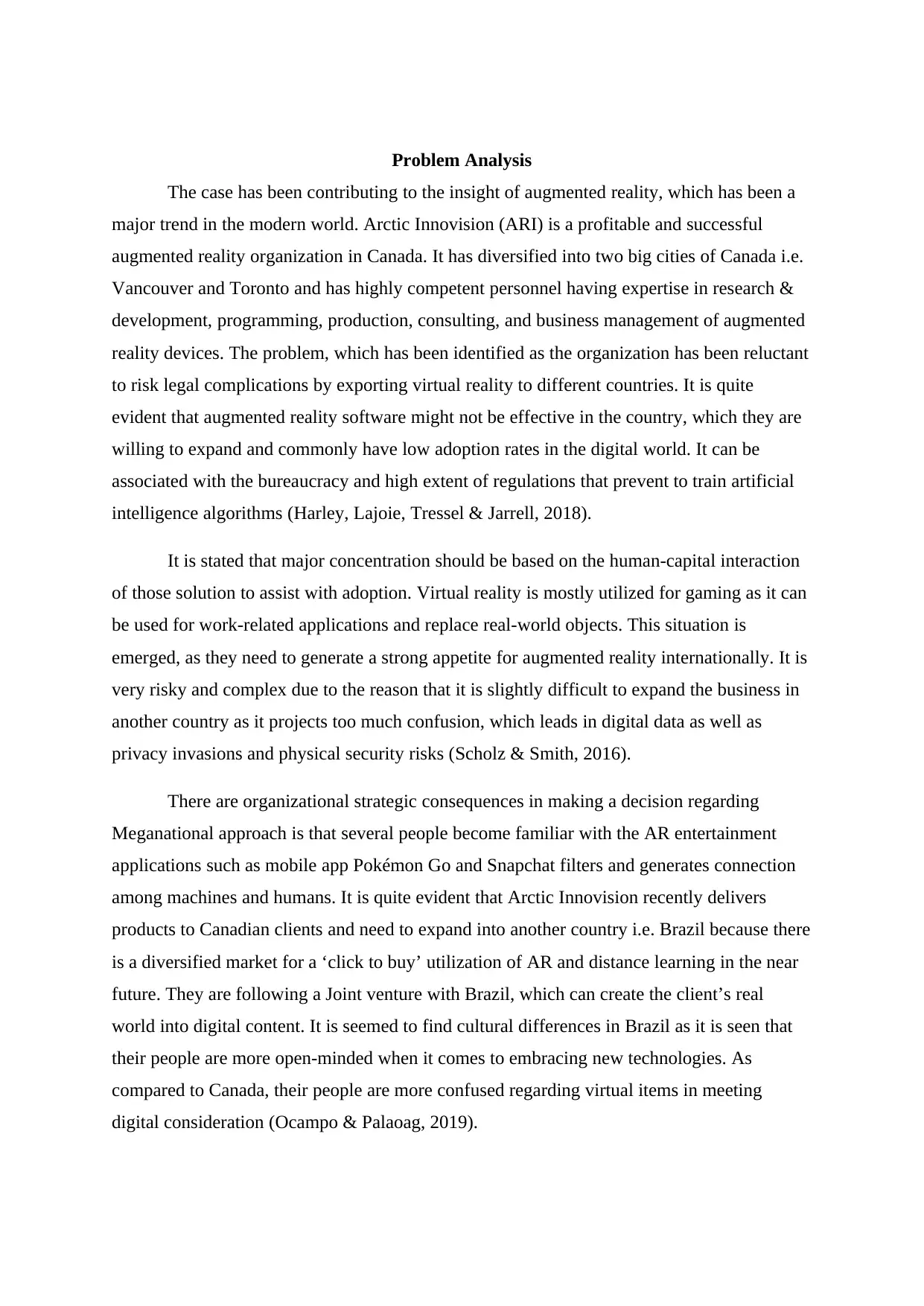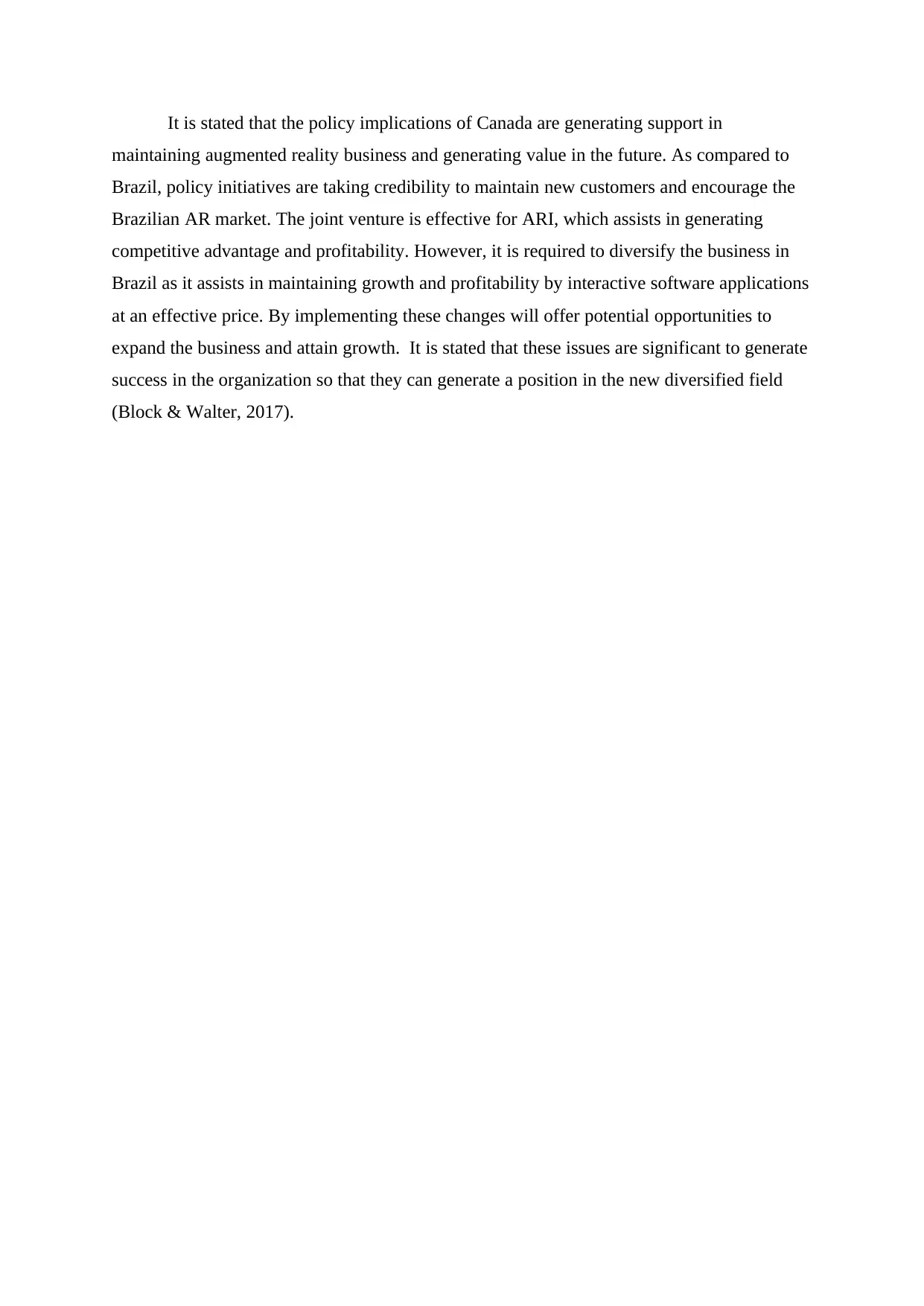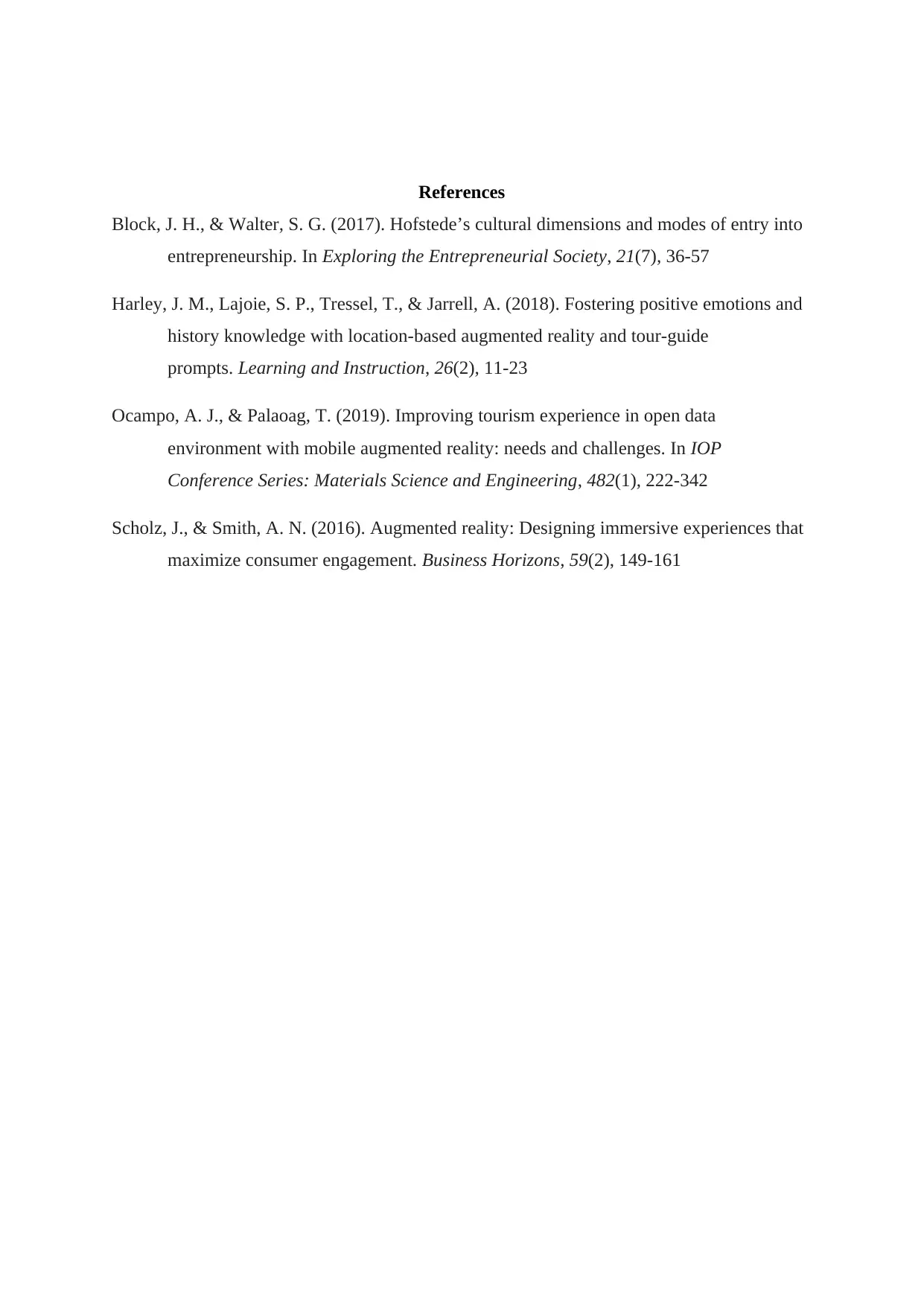ARctic Innovision Case Study: Problem Analysis and Strategic Decisions
VerifiedAdded on 2023/03/20
|4
|753
|91
Case Study
AI Summary
The case study focuses on ARctic Innovision (ARI), a successful augmented reality (AR) company in Canada, facing challenges in international expansion. ARI, with expertise in AR device development, seeks to expand into Brazil but faces legal and strategic complexities. The analysis highlights the company's reluctance to risk legal complications in exporting virtual reality, the need to generate international demand, and the cultural differences between Canada and Brazil. The case explores the potential of a joint venture in Brazil, considering policy implications, competitive advantages, and the need for interactive software applications. The study emphasizes the importance of addressing these issues to achieve organizational success and establish a strong position in the diversified field of AR.
1 out of 4







![[object Object]](/_next/static/media/star-bottom.7253800d.svg)